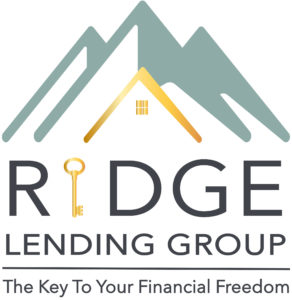education

Welcome to Ridge Lending Group
The heart of what we do is teach people how to skillfully navigate real estate investment and lending. Beyond the experience and the deep-rooted understanding that we have for mortgage lending and structuring loans to benefit investors for a lifetime, we also pilot first-time investors through the waters of their first property.
If you are new to real estate investment, please join our mastermind group for tips and support and get to know members of the
Ridge Lending Group Community.

Our Videos.
Listen to Our Podcasts
Understanding Investment Lending
Our team is going to work with you one-on-one to answer your questions and add incredible value, but we are mindful of your time. Here are some questions that we are often asked — and the answers.
Prequalification
Using passive income to qualify for a loan is acceptable, assuming it’s enough to offset the individual’s monthly liabilities (found exclusively on their credit report) and we have a two-year history of this type of income. On a case-by-case basis, a one-year history might be considered.
Yes, if you can show two years’ tax returns supporting self-employment status and all other underwriting qualifications are met.
Depending on your goals and, of course, each other’s qualifications, it is to your benefit to qualify individually, thus maximizing your access to all your conventional loan spots.
In general, a prequalification would be good for 120 days (the length of time a credit report is valid). However, assuming no negative changes to income, debt, assets and credit score, and pending some updated items (pay stubs, bank statements, etc.), a PQ is valid indefinitely.
Depending on where you are in the acquisition of properties, the credit score requirement changes. A person could qualify for an investment loan with a score in the mid 600’s, but this would require the individual’s application to have compensating factors — items such as strong assets or low DTI (debt to income). Once an investor reaches loan spots 7-10, however, credit score rules change and require a minimum middle credit score of 720 without exception.
No, you will only need to go through the full PQ process once. Of course, over time, we will need updated items for expired documentation.
Lending
Qualified individuals have access to 10 conventional loan spots. After you exhaust those 10, we have an additional unlimited number of loan spots under our Specialty NON-QM products.
Conventionally-speaking, rates will be less than, say, on a specialty loan product. Keep in mind that there are a variety of variables that factor into the interest rate you secure. Factors include credit score, loan size, LTV (loan to value), property type, occupancy and so on. Check with us for today’s rates.
Yes. There are two types of investment cash-out refinances — standard and delayed — and the rules are different for both. A quick call with us can clear up any questions you might have about either.
Yes, we do loans for primary residences, FHA, VA, USDA — and we offer a variety of Specialty (aka NON-QM) loans.
Yes, HELOCs are considered sourced and seasoned funds.
The answer to this largely depends on you and how quickly you can provide the necessary documentation. We set a typical expectation to close at 20-45 days post prequalification. There are several factors that play into a longer close time, but, most commonly, a property’s construction completion and appraisal turn times are the factors that cause delays.
Guidelines
120 days.
Yes, and depending on how many properties you have, those reserves' requirements change.
Conventional loans do not have prepayment penalties, but some of our specialty products will.
The down payment for an investment property must be in liquid form (checking/savings/money market accounts) and must be sourced and seasoned, meaning that we must be able to paper trail any large deposit as having originated with you. A minimum of 60 days is required for seasoning of funds.
For a conventional mortgage, the answer is no, as you must close in your individual name. Our specialty loan products do allow the individual to close title in the LLC, but the loan itself will still be secured by the individual.
Investment Terminology
A mortgage loan in which the interest rate is adjusted periodically based on a pre-selected index.
A gradual repayment of a debt by periodic installments.
An opinion of a property’s fair market value based on an appraiser’s knowledge, experience and analysis of the property in consideration of recent sales that were comparable.
A report documenting the credit history, score and current status of a borrower’s credit standing.
An organization that gathers, records, updates and stores financial and public records information about the payment records of individuals who are being considered for credit. Examples: Equifax, TransUnion, Experian.
The ratio, expressed as a percentage, which results when a borrower’s monthly payment obligation on long-term debts is divided by his or her gross monthly income.
Money paid to make up the difference between the purchase price and the mortgage amount.
Money given by a buyer to a seller as part of the purchase price to bind a transaction or assured payment.
An account held by the lender into which the homebuyer pays monthly for tax or insurance payments along with their principal and interest.
A form of insurance in which the insurance company protects the insured from specified losses, such as fire, windstorm, etc. Also known as homeowners insurance.
The relationship between the amount of the mortgage loan and the appraised value of the property expressed as a percentage.
The fee charged by a lender to process, underwrite, close, fund and package the mortgages it plans to deliver to the secondary mortgage market; usually computed as a percentage of the amount of the loan being secured.
A commitment issued by a lender to a borrower or other mortgage originator guaranteeing a specified interest rate. The rate lock may include lender costs for a specified period of time to guarantee the rate.
The decision process of whether to approve a loan to a potential borrower based on credit, employment, assets, debt-to-income ratios and other factors, plus the matching of this risk to an appropriate rate and term or loan.
A document signed by the borrower’s employer verifying his/her position and details of income.

Start Your Journey with Ridge Lending Group
Welcome to Ridge Lending, the ultimate partner for your real estate investment journey. Whether you're a seasoned investor looking to diversify your portfolio or new to the game and eager to make your first purchase, you've come to the right place. Here, it's not just about securing a mortgage—it's about finding the right loan that aligns perfectly with your investment goals for properties that will truly work for you.
Ready to take the first crucial step? The journey begins with a personalized consultation with our expert team. During this session, we'll dive deep into your specific needs, ambitions, and financial landscape. The goal is to GET PRE-QUALIFIED—a game-changing move that puts you in the driver's seat when it comes to real estate investing. With pre-qualification, you'll have the confidence and credibility to make offers that stand out in a competitive market.
Don't wait. Start your investment journey on the right foot. Book your consultation and get pre-qualified with Ridge Lending today.




